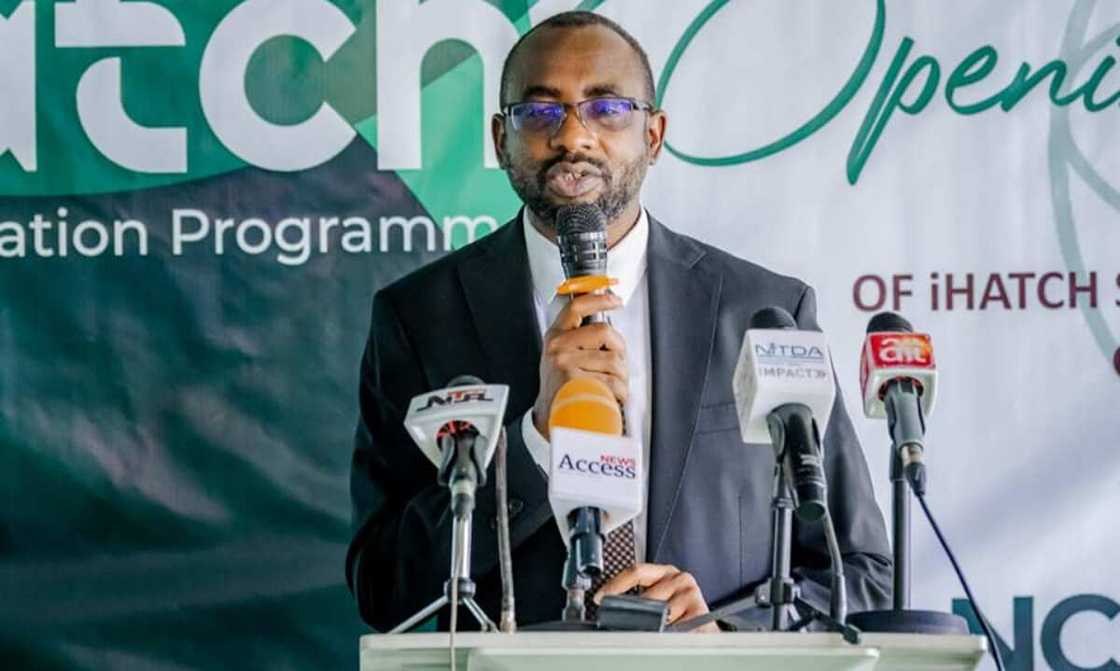UTAS: Between ASUU and NITDA on Integrity of Payment Platform, by Abbas Badmus
Editor's note: Abbass Badmus, a member of the Network of Advocates for Digital Reporting (NADIR), writes on the dilemma and intricacies surrounding the ongoing ASUU strike and failure to reach an accord with the federal government on its payment platform known as University Transparency and Accountability Solution (UTAS).
Nigerians were alarmed by the latest report that a payment platform created by the Academic Staff Union of Universities (ASUU) has failed three integrity tests.

Source: Facebook
The ASUU's preferred payment option known as the University Transparency and Accountability Solution (UTAS) was created as an alternative to the Integrated Payroll and Personnel Information System (IPPIS) that the federal government uses to pay its workers in various sectors of the economy.
In fact, about 711 ministries, agencies in Nigeria are on the IPPIS platform, but ASUU insists on being the only standout, not that alone. FGs effort to accommodate ASUU's rebellion is taken for a peppersouping ride by the Academic union.
The integrity test verdict was announced by the National Information Technology Development Agency (NITDA) - the organ with the statutory mandate to superintend over technologies and digital advancements in the country.
The director-general of NITDA, Kashifu Inuwa during a briefing with Journalists after presenting the agency's findings at the Federal Executive Council (FEC) meeting took time to explain vital points relating to the UTAS that should get concerned citizens thinking hard about the possible way(s) out to quickly resolve the tangible concerns in order to get university teachers back to the classrooms.
One, NITDA boss explained that users’ acceptance test is key to the functionality of the UTAS, a test which the touted platform failed after people in the Bursary and Finance Departments tried it out.
Kashifu said:
“Firstly, because when you’re building a system, it’s not just about the technology, you need to consider the people that will use this system and the process.
“If you don’t align people, process, and technology, you will never get a result. No matter how good the technology is, if people don’t understand how to use it, they won’t use it. And if the process is different from the way the people work, also, they won’t use it."
Frankly speaking, this point is elementary knowledge for basic communication students as propounded by the diffusion of innovation theory.
Secondly, he explained that the UTAS failed to meet the required standards in testing for vulnerability. The nation's chief technology officer went as far as projecting the danger the ASUU's purports, considering that it is a financial system. The fact that the UTAS is vulnerable means an open window for looters and certified kleptos to latch on and swindle Nigeria's dry.
Furthermore, Kashifu explained that a technology like that needs to be durable in order not to collapse on an overload due to stress. In that regards too, the UTAS failed the test.
He said:
“You can build a system on your laptop or on a small computer, use it but when you put so many data it will crash, we need to do the stress test to make sure that system can do."
To compound the problem, ASUU is yet to reveal the data center where it wants its system installed.
Before releasing its finding, NITDA had submitted its report to the Minister of Communication and Digital Economy who in turn forwarded it to relevant institutions, including ASUU itself.
Expectedly as the news trickled in, eyebrows raised, and the daggers were drawn along the line of sentiments and myopic deductions - especially by those who only read headlines without the contents in the body.
Sadly, even ASUU condescended to this level of pathetic bickering when its president, Professor Emmanuel Osodeke, at a Sunrise Daily program on Channel's Television wholesomely faulted all the statements of the director-general of NITDA.
Professor Osodeke did not only stop there he went on to spew derogatory remarks on the minister of communication and digital economy, Professor Ali Ibrahim Pantami.
He also accused NITDA of giving misleading reports to Federal Executive Council on the UTAS platform as they were never present at any of the agreed meetings.
He said:
“If you subject this to a test today, we will have 99%, but they went ahead to tell the country a lie and this is why they are creating problems in this country."
He further claimed that the UTAS has passed through an integrity test and passed 77% and also passed through an end-user test and it scores 88%.
It is curious that ASUU did not initially raise the alarm when it received the report from the Minister but is now turning around on the defensive after the integrity of their product is publicly questioned.
Since NITDA and ASUU have made claims and counterclaims on the integrity of the payment platform, and in order to preserve the sanity of the Nigerian populace in the ensuing imbroglio and the integrity of both parties should have the courage to appear on a public debate and trash out contentious issues in public glare.
This is a challenge whose gauntlet must be picked up by the truth-bearers.
The debate will avail Nigerians the opportunity to know who is playing with their intelligence and make better and more informed judgments.
Source: Legit.ng


